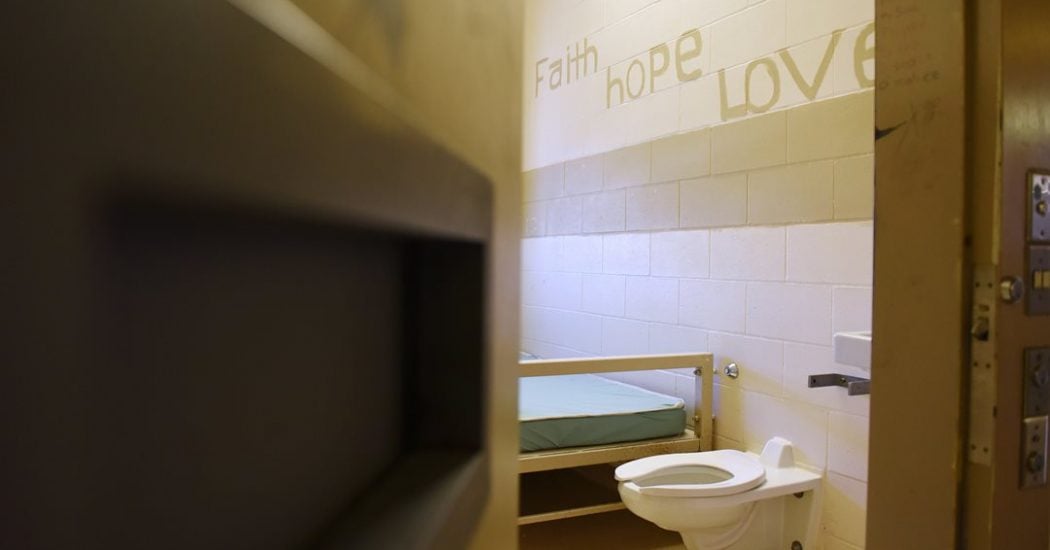
KJIPUKTUK (Halifax) – Incarcerated and criminalized mothers are among the most marginalized women in society. The stigma faced by mothers who come into conflict with the criminal legal system weighs heavily on them and can make it extremely difficult to reintegrate into society, and to rebuild their lives.
For the past 18 months, we have been developing and delivering specialized services for women involved in the Nova Scotia criminal legal system that are responsive to their needs and considerate of the unique sets of circumstances, and barriers, that mothers interacting with various state systems are faced with.
The Family Justice Project provides supports and services to women and mothers who are navigating the family courts through child protection and custody matters, and mothers who are provincially incarcerated or criminalized. The Family Justice Project also aims to address the disproportionate impact of the law on women who identify violence against them (particularly intimate partner abuse and sexual violence), but then find themselves facing criminal and other consequences.
The idea for the project was originally presented to the Halifax chapter of 100 Women Who Care, at their December 2019 meeting. The group voted to support the program, donating in excess of $14,000 to help us to support mothers incarcerated provincially at the Central Nova Scotia Correctional Facility. Then called M.O.M (Mothers on the Mend), Coverdale staff began offering family-centered services for formerly or presently incarcerated moms, including parenting programs, family strengthening activities, support in the nurturing of family relationships, connections to community supports for families during incarceration and following release, and gender-specific interventions.
This project picked up on many of the recommendations from a 1992 report on women’s corrections titled Blueprint for Change, which organizations like Coverdale and the Elizabeth Fry Society were consulted on. The report made a number of essential recommendations to address the criminalization of women, including the creation of community-based alternatives to imprisonment which would, among other things, allow for mothers to remain connected with their children. Unfortunately, many of the recommendations in the report were never implemented and the issues that it addresses have heightened exponentially over the years.
There is extensive research on the harmful effects of mother-child separation and in particular, the impacts in the context of imprisonment—work that is regularly underscored by local reproductive justice and advocacy organization Wellness Within.
M.O.M was expanded in 2020 into The Family Justice Project and was funded by the Law Foundation of Nova Scotia as a special project. This funding helped us launch the Parenting Inside Out Program, an evidence-based parenting skills training program developed for criminal justice involved parents. According to the program developers, “as part of a re-entry program, Parenting Inside Out has a proven impact on reducing recidivism and criminal behavior while improving family relationships and parenting skills”. This is the only program of its kind in Nova Scotia, and one of two parenting program options available for provincially incarcerated women.
Due to the restrictions imposed as a result of the COVID-19 pandemic, visitors, volunteers, and outside organizations no longer have access to the jail, therefore the program has not been able to be brought into the facility.
Coverdale has been supporting decarceration efforts over the past year, however, helping countless women and gender diverse individuals through urgent releases and reintegration, predominantly through bail. Caitlan’s Place, a 6-bed bail house for women, trans and non-binary individuals that has become home to the Family Justice Project, as the majority of women being released to the house are mothers. Whether their goals are to regain custody of their children, have visits with their children, or begin to heal from the trauma of separation from their children, the Family Justice Program is there to help.
To date, over 60 currently and formerly incarcerated mothers have been supported through the Family Justice Project, either in family court, through child protection matters, with child visitations, or through programming and other gender informed interventions. Advocacy on systemic issues also forms an important piece of this work.
One woman described her experiences with the project:
“Three years ago, I got a call that changed my life, I found out mom called child protection services on me. I lost my son, my family, my car, my home. During these years I was in and out of shelters and couch surfing with no one to facilitate visits, I wasn’t able to see my son often at all. This last time I was in the shelter was life changing but in a positive way, I needed some good news and for once I finally got it. I got help getting a place thanks to Barry House and learned about Coverdale. Mirinda got in touch with me shortly after contacting me and she got the ball rolling immediately. She gave me the confidence and the resources I needed to be able to contact CPS. Now I have reunited with my son and am so grateful, she gives up her weekends for me and him to build back our relationship. Not only that she checks on me all the time to see if I need anything. She truly cares about her clients, myself, and my son.”
The barriers that the mothers we work with face, can be incredibly challenging. Access to safe and secure housing that satisfies the expectations of the courts, is a struggle that has become even more prevalent in today’s housing affordability and availability crisis. Restrictions imposed by the pandemic make access to children in the custody of others near impossible, and court restrictions and delays are prolonging both criminal and family matters.
Despite the challenges, the mothers that we work alongside, demonstrate incredible resiliency and strength in their pursuit of connections with their children and families. A recent conversation with one mom revealed that she took the vaccine when it was offered to her in the jail because she didn’t want anything to stand in the way between her being able to reconnect with her children when she is released.
Many women will be released in the coming weeks, as the COVID-19 pandemic threatens the safety of prisoners and staff in the jail. This is the best Mother’s Day gift that we can think of and aligns with those age-old recommendations of Blueprint for Change. Alternatives to incarceration that address the root causes of criminalization help to strengthen families and communities.
Despite the Family Justice program being defunded this past April, we have found ways to keep it running, and will continue to seek funding to sustain it. For more information, please visit www.coverdale.ca.
Mirinda Bray is Family Justice Coordinator and Ashley Avery is the Executive Director of the Coverdale Courtwork Society.
Coverdale exists to provide a continuum of care that acknowledges and addresses the needs of women and trans people in our communities that have come into contact with law. We aim to contact persons experiencing the justice system, to be present at the courts each day (Halifax/Dartmouth/Mental Health/Family/Youth), to provide information, legal navigation and emotional support during the court process, to visit the federal and provincial institutions, providing counselling, programs, information and assistance in release planning. Our services promote self-esteem, self-awareness and inner strength for personal healing, growth and change and seek to lower the incidence of crime involvement through education and prevention programs that address the pathways to criminalization.
Check out our new community calendar!
With a special thanks to our generous donors who make publication of the Nova Scotia Advocate possible.
Subscribe to the Nova Scotia Advocate weekly digest and never miss an article again. It’s free!



